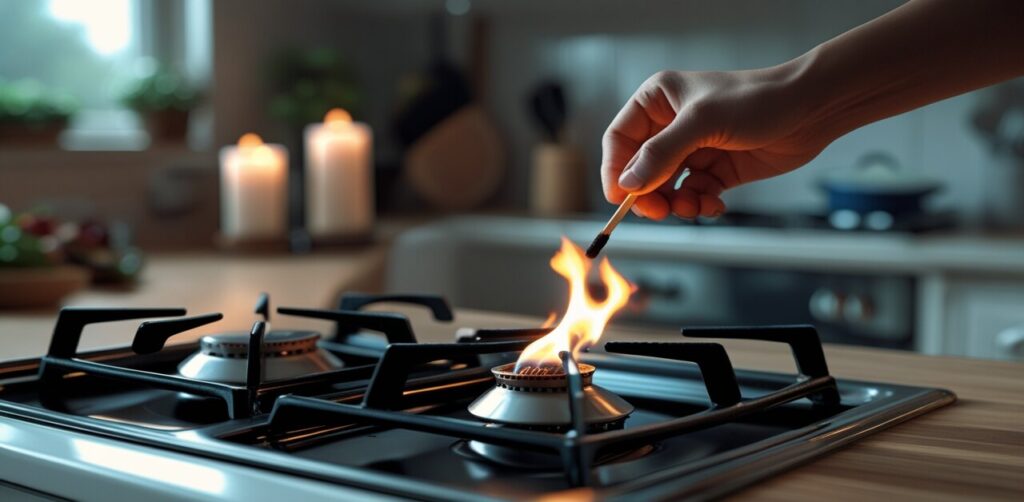Can You Use a Gas Stove Without Electricity? Everything You Need to Know
The humble kitchen stove is at the heart of every household, enabling everything from quick breakfasts to elaborate dinners. For most families and culinary enthusiasts, it’s an indispensable tool. However, as many modern appliances—such as electric kettles—become increasingly reliant on electricity, you may wonder—can you rely on your gas stove if the power goes out? Maybe you’re thinking about off-grid living or preparing your home for emergency scenarios. This blog post will explore whether you can use a gas stove without electricity, the benefits of gas stoves, safety tips, and even converting from electric to gas for a more energy-efficient and versatile kitchen.
By the end, you’ll feel confident understanding whether a gas stove is the right choice for your lifestyle.
Can You Use a Gas Stove Without Electricity?
The short answer is yes. Gas stoves can typically operate without electricity—it’s one of their biggest advantages as an appliance. Unlike electric stoves, which rely entirely on an electrical connection to function, gas stoves use natural gas or propane as their primary energy source. This means the burners can light and produce heat independent of an electrical supply.
But there’s a catch! While standard gas burners can work during a power outage by manually igniting them with a match or lighter, any electrically powered features—like electronic ignition or oven controls—won’t be functional. If your gas stove is equipped with an electric ignition instead of a standing pilot light, you may need to ignite it manually. Consult your stove’s user manual to confirm its operation during power interruptions and off-grid usage.
For homeowners living in areas prone to storms or looking to maintain cooking capabilities during emergencies, gas stoves are an invaluable asset.
The Advantages of Using Gas Stoves
Switching to a gas stove offers a host of benefits, making it an appealing choice for cooking enthusiasts, busy families, and those focused on efficiency and sustainability.
Energy Efficiency
Gas stoves are often considered more energy-efficient compared to their electric counterparts. Unlike electric stoves, which heat an element before transferring that heat to cookware, gas stoves provide instant heat via direct flames. The precision of gas stoves allows for better temperature control while cooking, which conserves energy. From quick boiling to slow simmering, gas stoves ensure no wasted electricity or time.
Lower Operational Costs
The cost of natural gas or propane is generally lower than electricity in most regions, resulting in reduced operational costs over time. For households that cook frequently, these savings can add up significantly.
Eco-Friendliness
For those focused on living sustainably, gas stoves produce fewer greenhouse gases during operation compared to electric stoves powered by fossil fuel-based electricity grids.
Superior Cooking Performance
With gas, you enjoy immediate and adjustable heat control, essential for tasks like stir-frying, sautéing, or getting the perfect sear on your steak. Professional chefs often prefer gas stoves for this precise control.
Reliable During Power Outages
Perhaps most importantly, gas stoves remain functional during power outages, making them a dependable choice when the electricity is out but a hearty meal is still on the agenda.
Considerations for Gas Stove Users
Despite all the benefits, there are a few important considerations to take into account when operating a gas stove, especially when used off-grid or during emergencies.
Safety Comes First
- Proper Ventilation Required
Gas stoves emit carbon monoxide and other gases during combustion. Always use gas stoves in well-ventilated areas, and consider installing a vent hood or range hood to improve airflow.
- Install a Carbon Monoxide Detector
Whether you’re in an on-grid home or off-grid cabin, this device is vital to detect unsafe gas levels.
- Manual Ignition
If you’re manually lighting a burner during a power outage, exercise caution. Use long matches or lighters to avoid accidents, and never leave the burner unattended.
Maintenance is Key
- Regularly inspect gas connections for leaks or wear.
- Schedule annual servicing by a professional technician to ensure your gas stove continues to operate efficiently and safely.
Emergency Readiness
Even with a gas stove, it’s good to keep backup tools—such as portable butane burners or outdoor grills—ready for extended power outages.
Converting Electric Stoves to Gas
Are you considering making the switch from electric to gas? You’re not alone. Many people opt for gas stoves to enjoy the benefits mentioned above, but knowing the logistics of conversion is essential.
Is It Possible?
Yes, converting an electric stove to gas is possible, but it requires your kitchen to already have or install gas lines and appropriate ventilation. Certified professionals should always handle this process to comply with safety codes.
Benefits of Converting
- More Energy-Efficient Cooking—Save on utility bills in the long run.
- Bi-Fuel Options—Some stoves allow both electric ovens and gas burners, giving you the best of both worlds.
- Enhanced Cooking Experience—Many households report a superior cooking experience on gas stovetops.
Costs to Consider
Depending on your home’s existing infrastructure, the costs will depend on whether gas lines need to be installed. On average, this could range from $300 to $1200 or more.
Pro tip: Pair the transition to gas with other kitchen updates to make it worth your while.
FAQs About Gas Stoves
Are gas stoves safe for indoor use?
Yes, with proper ventilation and maintenance, gas stoves are perfectly safe to use indoors. Always install a carbon monoxide detector in your kitchen for added security.
What happens to my gas stove during extended power outages?
While the burners can often be lit manually, features like electric ignition and the oven won’t work. Check the manual for specifics on your model.
Are there types of gas stoves better suited for off-grid living?
Yes, some gas stoves are designed specifically for off-grid applications. Look for models with standing pilot lights or dual-fuel systems.
Does switching to a gas stove save money over time?
Yes, natural gas is often more affordable than electricity, and the energy efficiency of gas stoves can reduce your overall operational costs.
Adding a Gas Stove to Your Kitchen
Whether you’re upgrading your home, transitioning to off-grid living, or simply seeking a better cooking experience, gas stoves have proven themselves to be energy-efficient, reliable, and high-performing kitchen appliances. With advantages like lower costs, precise temperature control, and usability during emergencies, it’s no wonder they’re a top choice for so many households.
Eager to improve your kitchen’s function and style? Start exploring energy-efficient stoves today and consider incorporating a gas model into your culinary space.



